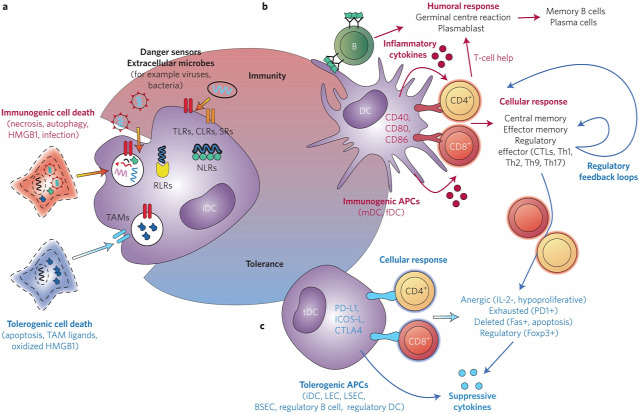
The quest for swift and robust immunity against infectious diseases has led researchers to explore innovative approaches, and one such breakthrough is the use of quick immune adjuvants in vaccine development. This article will delve into the mechanisms by which these adjuvants contribute to the accelerated development of immunity, the challenges associated with their implementation, and the potential impact on public health.
Understanding Quick Immune Adjuvants:
Quick immune adjuvants are specialized components incorporated into vaccines to enhance the body's immune response. Unlike traditional adjuvants, which may take time to initiate a robust reaction, quick immune adjuvants are designed to rapidly activate the immune system. This acceleration is crucial for developing effective vaccines against fast-spreading pathogens.
Rapid Immune Activation Mechanisms:
- Innate Immune Stimulation: Quick immune adjuvants often target the innate immune system, the body's first line of defense. By activating innate immune cells such as macrophages and dendritic cells, these adjuvants trigger a cascade of events that kickstarts the immune response within hours of vaccination.
- Cytokine Release: Some quick immune adjuvant induce the rapid release of cytokines, signaling molecules that regulate immune responses. Elevated cytokine levels alert the immune system to the presence of a potential threat, prompting a quicker and more potent reaction.
- Antigen Presentation Enhancement: Quick immune adjuvants facilitate the efficient presentation of vaccine antigens to immune cells. This enhances the recognition of the target pathogen, allowing for a faster and more precise immune response.
Enhancing Vaccine Efficacy:
- Improved Antibody Production: Quick immune adjuvants play a pivotal role in enhancing the production of antibodies, which are key components of the adaptive immune response. Accelerated antibody production ensures a rapid and effective defense against invading pathogens.
- Cell-Mediated Immunity Boost: These adjuvants are designed to stimulate cell-mediated immunity, involving the activation of T cells. By promoting a swift T cell response, quick immune adjuvants contribute to the elimination of infected cells and the long-term memory of the immune system.
Minimizing Time to Protection:
- Critical Importance in Outbreak Scenarios: In the face of infectious disease outbreaks, time is of the essence. Quick immune adjuvants are particularly valuable in such scenarios, where a delayed immune response can result in widespread transmission. The ability to rapidly develop immunity can be instrumental in containing outbreaks.
- Reducing the Need for Booster Shots: The speed at which quick immune adjuvants activate the immune system may reduce the necessity for multiple booster shots. This not only streamlines vaccination schedules but also enhances compliance and coverage, especially in resource-limited settings.
Versatility in Vaccine Design:
- Adapting to Emerging Pathogens: Quick immune adjuvants offer flexibility in designing vaccines for newly emerging pathogens. Their ability to elicit rapid and potent immune responses makes them valuable tools in addressing emerging infectious diseases with previously unknown characteristics.
- Application in mRNA and Vector-Based Vaccines: The adaptability of quick immune adjuvants extends to various vaccine platforms, including mRNA vaccines and viral vectors. Their incorporation into these advanced vaccine technologies holds promise for developing effective vaccines against a wide range of infectious agents.
Challenges and Considerations:
- Balancing Speed and Safety: While quick immune adjuvant aims for rapid immune activation, it is crucial to strike a balance with safety. Excessive immune stimulation may lead to adverse reactions, necessitating careful evaluation and optimization of adjuvant formulations.
- Long-Term Effects and Memory Response: The speed at which quick immune adjuvants induce immunity raises questions about the durability of the immune response. Researchers are exploring ways to ensure that the accelerated immune reaction translates into long-lasting memory responses for sustained protection.
Case Studies and Success Stories:
- Influenza Vaccines: The development of influenza vaccines with quick immune adjuvants has shown promising results. These adjuvants enhance the effectiveness of influenza vaccines, providing rapid protection during seasonal outbreaks and potentially mitigating the impact of new influenza strains.
- Emerging Infectious Diseases: Quick immune adjuvants have been at the forefront of efforts to combat emerging infectious diseases, such as Zika virus and Ebola virus. The ability to mount a swift immune response is instrumental in controlling outbreaks and preventing further transmission.
Future Trends and Innovations:
- Next-Generation Adjuvants: Ongoing research aims to develop even more advanced quick immune adjuvants with improved efficacy and safety profiles. These next-generation adjuvants may further revolutionize vaccine development and expand their application to a broader range of infectious agents.
- Personalized Vaccines: The adaptability of quick immune adjuvants opens the door to personalized vaccine strategies. Tailoring adjuvants to individual immune profiles could enhance vaccine responsiveness, potentially leading to more effective and personalized vaccination approaches.
The integration of quick immune adjuvant into vaccine development holds immense promise for accelerating the pace at which immunity is achieved. The ability to mount a rapid and robust immune response is particularly critical in the face of emerging infectious threats and outbreaks. While challenges remain, ongoing research and innovations in adjuvant design are paving the way for a future where vaccines can provide swift and durable protection against a wide array of pathogens. As science continues to unlock the secrets of the immune system, quick immune adjuvants stand as a beacon of hope in the ongoing battle against infectious diseases.

